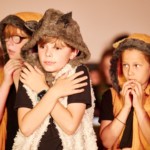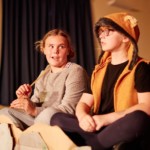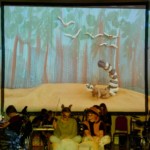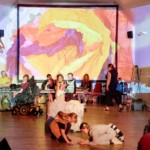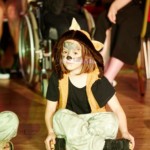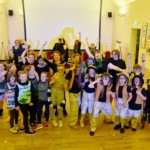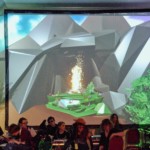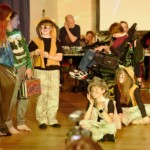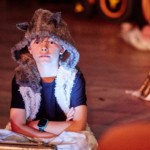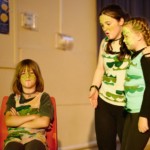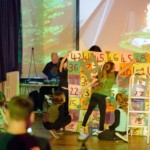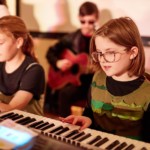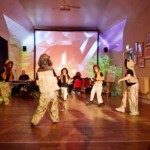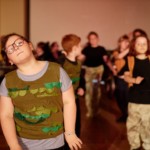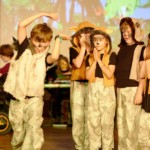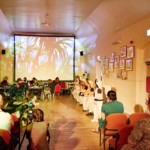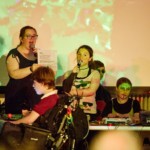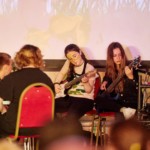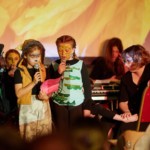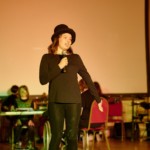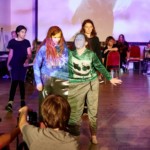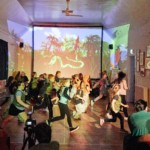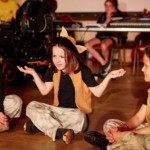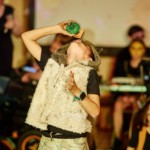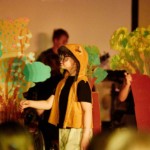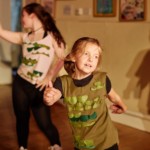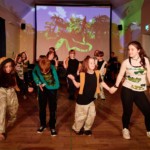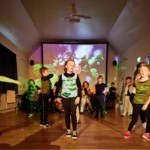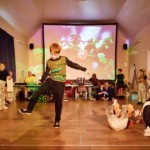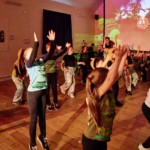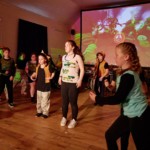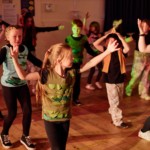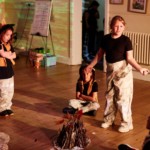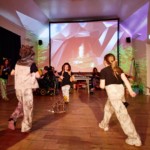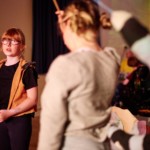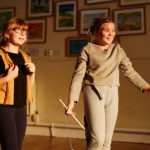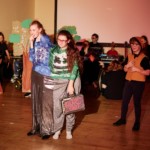We worked with artist Kay Stowell, learning different fused glass techniques, to make panels of seasonal leaves. [Read more…]
Project eARTh Song
We finally recorded the Project eARTh song that the group composed with musician Claire Mooney 18 months ago! It is all about Project eARTh, the friendships we make and art we create…
We are making a Youtube film to go with the song, but meanwhile, have a listen. We hope you like it.
‘Project eARTh’ by The Collective
Audio Player
Nurture Nature
This project was led by artist Amanda Whewell. It was collage and printing based, inspired by the work of British artist Mark Hearld.
The 30 beautiful completed framed collages are now in their new home, on the walls of St. Anne’s Parish Hall, and really brighten up the room.
The Felted Fall of Leaves
Participants worked with artist Carol Wilson to make individual felted squares on an Autumn theme – to include wet felting and then embellishing the work with embroidery. To start the project, everyone made a small square inspired by the traditional felting of Kyrgystan.
Brookfield Pond
A High Peak ABC
Welcome to the High Peak ABC song! Listen here:
The High Peak ABC, book and song have been produced since May 2022 by our Early Years team, Karl, Andrea & Lucy.
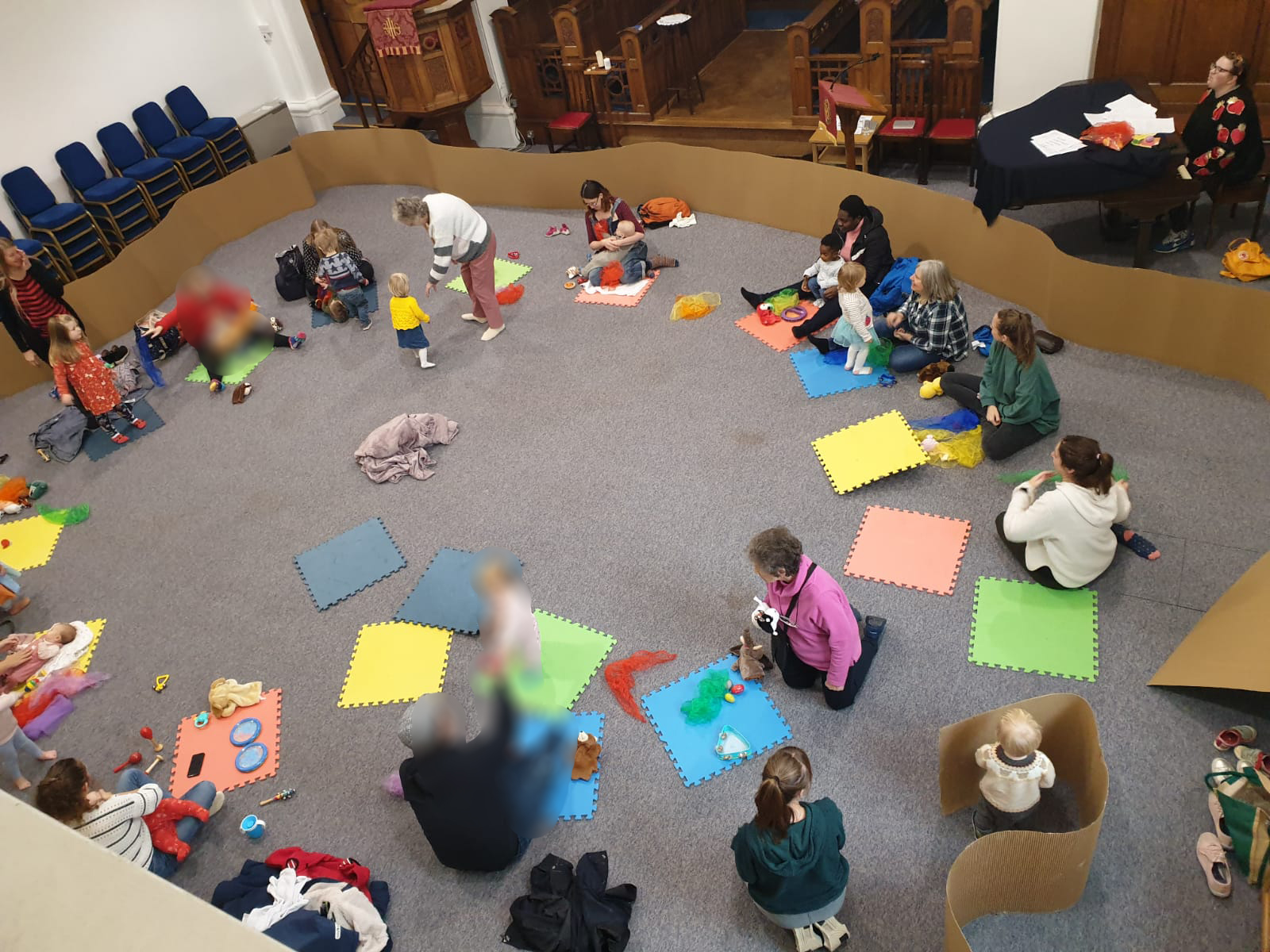
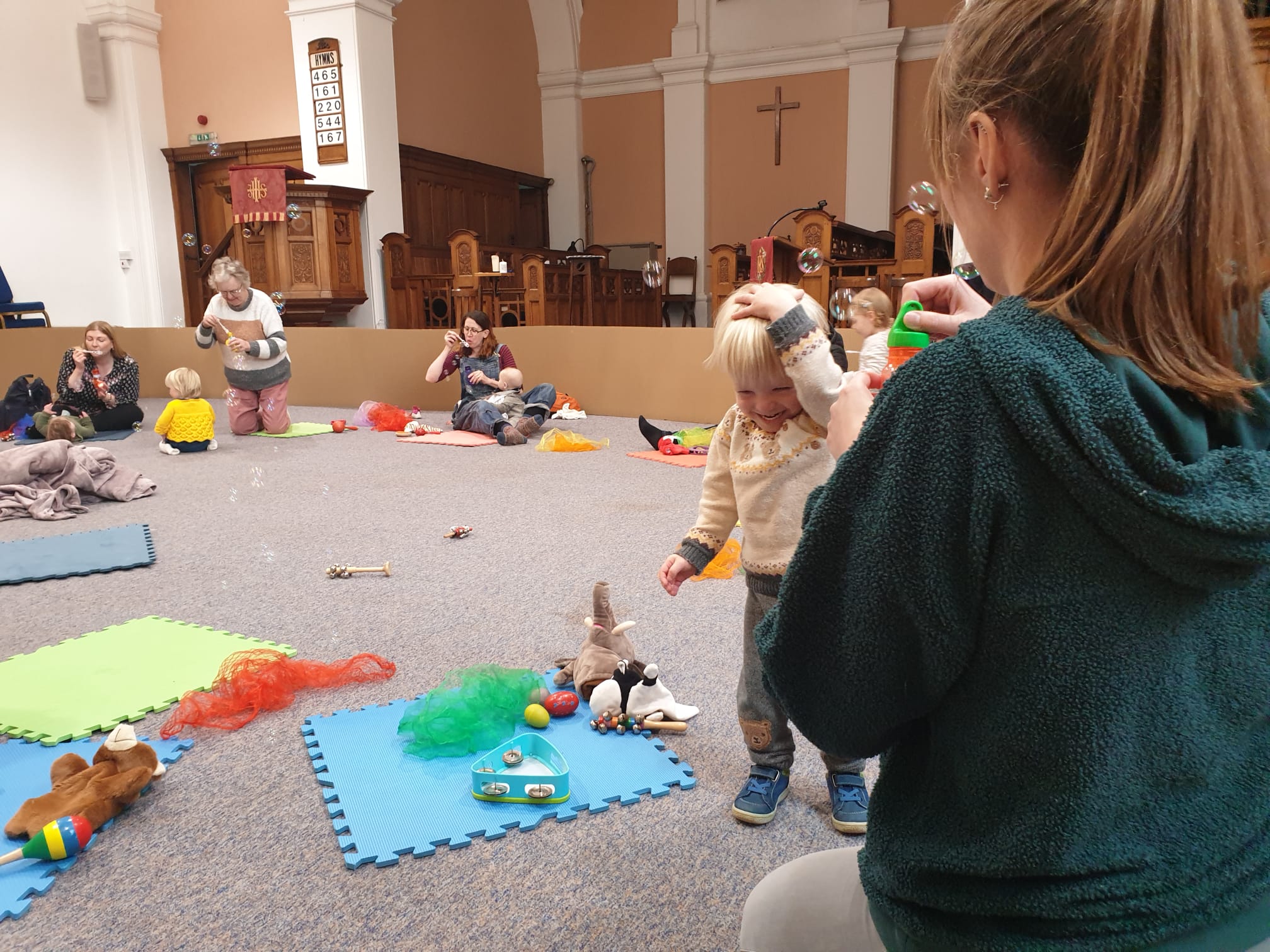
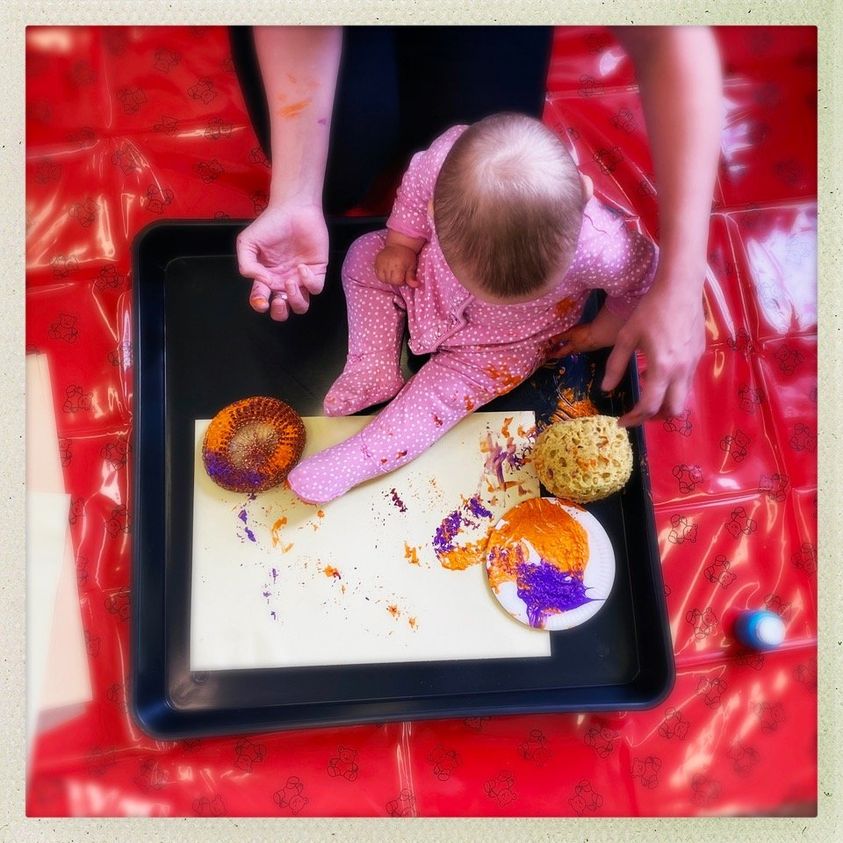
A perfect show!
FREE baby workshop! Tues 5th July.
Sign up for our FREE baby workshop!!
Date: Tuesday 5th July
Time: 10:00-11:00
Venue: St Anne’s Community Centre
Our Early Years team are running the next FREE baby arts workshop in Buxton. The 45 minute session will include songs & rhymes and music-making, a simple ‘let’s get messy’ arts and crafts activity, and some soapy fun sensory play to finish up with. Up to two adults and one non-walking baby per family booking. These are stand alone sessions with some follow up music sessions over the summer. Each workshop is limited to four babies on a first come first served basis. To book a place please email sophie@highpeakarts.org
Content coming soon!
Please check back later.
- « Previous Page
- 1
- …
- 3
- 4
- 5
- 6
- 7
- …
- 32
- Next Page »






















